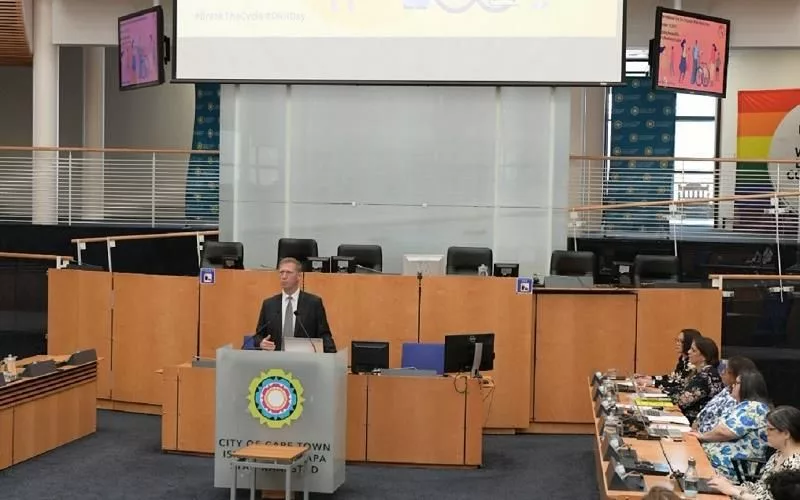The National School of Government (NSG) is celebrating its 10-year anniversary with a range of activities and events showcasing its contributions to building public sector capacity in South Africa. Over 526,000 participants have benefited from its training programs, generating more than R1 billion in course fee revenue. The NSG has hosted high-impact engagements and demonstrated good governance and financial management through consecutive years of unqualified and clean audits, while effectively navigating the challenges presented by the COVID-19 pandemic and increasing online enrolments for eLearning courses. Its efforts align with the South African government’s decision to prioritize the development of a capable, ethical, and developmental state.
What is the National School of Government and what has it achieved in its ten-year history?
The National School of Government (NSG) was established in 2013 to replace the Public Administration Leadership and Management Academy (PALAMA) in South Africa. Over 526,000 participants have benefited from its training programs, generating more than R1 billion in course fee revenue. The NSG has made impressive progress, including hosting high-impact engagements and demonstrating good governance and financial management through consecutive years of unqualified and clean audits. It has also effectively navigated the challenges presented by the COVID-19 pandemic, resulting in a substantial increase in online enrolments for eLearning courses.
A Proud Milestone for the National School of Government
October 2023 will see the National School of Government (NSG) joyously commemorate its 10-year anniversary. A range of activities and events will take place from October 13th to 20th, showcasing the School’s outstanding contributions to building public sector capacity and enhancing performance in South Africa.
Originating from a presidential proclamation on October 21st, 2013, the NSG replaced the Public Administration Leadership and Management Academy (PALAMA) and was created as a national government department within the Minister for Public Service and Administration’s portfolio.
Throughout its ten-year history, the NSG has made impressive progress. Over 526,000 participants have benefited from its training programs, generating more than R1 billion in course fee revenue. The past three years have been particularly noteworthy, witnessing the NSG embark on a period of revitalization and repositioning. This phase has been characterized by an energetic marketing and visibility campaign, engaging public servants, the broader public sector, and academia within South Africa and beyond.
Strengthening Public Sector Development and Establishing Thought Leadership
The NSG has hosted various high-impact engagements, including Master-Classes both in-person and online, reinforcing its reputation as a thought leader in governance and professional public sector development. Moreover, the School consistently demonstrates good governance and financial management, as shown by consecutive years of unqualified and clean audits.
In challenging times, the NSG has showcased its resilience. The COVID-19 pandemic, which led to booking cancellations and reduced course uptake, was met with creative and adaptable solutions. By prioritizing digital and online learning interventions, the School effectively navigated the difficulties presented by the pandemic. This digital shift resulted in a substantial increase in online enrolments for eLearning courses: from April 2020 to December 2021 alone, 123,000 learners enrolled in these courses.
The NSG’s efforts align with the South African government’s decision to prioritize the development of a capable, ethical, and developmental state, as detailed in the 2019-2024 Medium Term Strategic Framework (MTSF). The School’s expanded mandate includes providing training across all levels of government, from cadet and foundation phases to middle, senior, and executive management.
The NSG’s delivery model encompasses classroom-based learning, practice-based learning, e-Learning, webinars, student exchanges, and dialogue with public and private sector actors. Furthermore, the NSG’s work is supported by numerous local and international partners, further enriching its offerings.
Developing Partnerships and Delivering Flagship Programs
In its 2019-2024 Strategic Plan, the NSG pledged to use partnerships with South African and international public and private institutions to deliver high-quality education, training, and development interventions. These collaborations extend learning opportunities, facilitate access to international expertise, and position the NSG as a global thought leader. Public officials have gained from exchanges with leading institutions from Africa, Asia, Europe, and the Americas.
The NSG’s flagship programs encompass high-level executive education courses and compulsory programs for public servants. For example, the Cabinet-approved Economic Governance School targets Members of the Executive, while the Etella program is designed for Accounting Officers. The compulsory Nyukela program targets individuals aspiring to work in senior management positions for the first time, with 5,523 learners successfully completing the program in the 2022/23 financial year.
Promoting ethical conduct in the public sector is a central focus of the NSG, as evidenced by the compulsory Ethics in the Public Service course. This flagship program has seen significant participation, with 13,765 learners completing the course in the 2022/23 financial year.
In addition to formal training, the NSG actively engages with traditional leaders, providing them with the skills necessary to act as economic change agents in their communities and lead rural development interventions.
In response to the government’s push towards professionalizing the public sector, the Minister for Public Service and Administration assigned the NSG the responsibility of drafting the National Framework Towards Professionalisation of the Public Sector. The approved framework outlines interventions in five pillars to professionalize the sector, with the NSG leading these initiatives.
According to NSG’s Principal, Prof Busani Ngcaweni, the anniversary celebrations will serve as an opportunity to connect with their target audience and raise awareness of their work in the broader society. With a crucial role in building a professional, efficient, effective, and caring public sector, the NSG and its partners are well-positioned to continue their pursuit of an ethical, capable developmental state.
The celebratory program, running from October 13th to 20th, 2023, features a variety of events, including a youth development webinar, open days for human resource development coordinators, higher education institutions, and international partners, as well as a celebratory event attended by heads of government departments and state-owned companies. Through these events, the NSG aims to showcase its accomplishments over the past decade and lay the groundwork for continued success in the years ahead.
1. What is the National School of Government, and when was it established?
The National School of Government (NSG) was established in 2013 to replace the Public Administration Leadership and Management Academy (PALAMA) in South Africa.
2. What are some of the NSG’s achievements in its ten-year history?
Over 526,000 participants have benefited from its training programs, generating more than R1 billion in course fee revenue. The NSG has also hosted high-impact engagements and demonstrated good governance and financial management through consecutive years of unqualified and clean audits. It has effectively navigated the challenges presented by the COVID-19 pandemic, resulting in a substantial increase in online enrolments for eLearning courses.
3. How is the NSG celebrating its ten-year anniversary?
The NSG is celebrating its ten-year anniversary with a range of activities and events from October 13th to 20th, showcasing its contributions to building public sector capacity in South Africa.
4. What is the NSG’s expanded mandate?
The NSG’s expanded mandate includes providing training across all levels of government, from cadet and foundation phases to middle, senior, and executive management.
5. What is the NSG’s delivery model?
The NSG’s delivery model encompasses classroom-based learning, practice-based learning, e-Learning, webinars, student exchanges, and dialogue with public and private sector actors.
6. What are the NSG’s flagship programs?
The NSG’s flagship programs include high-level executive education courses and compulsory programs for public servants, such as the Economic Governance School, Etella program, and the Nyukela program. The NSG also offers a compulsory Ethics in the Public Service course.
7. What is the NSG’s role in professionalizing the public sector?
The Minister for Public Service and Administration assigned the NSG the responsibility of drafting the National Framework Towards Professionalisation of the Public Sector, outlining interventions in five pillars to professionalize the sector, with the NSG leading these initiatives.
8. What events will take place during the NSG’s ten-year anniversary celebration?
The celebratory program includes a variety of events, including a youth development webinar, open days for human resource development coordinators, higher education institutions, and international partners, as well as a celebratory event attended by heads of government departments and state-owned companies.








